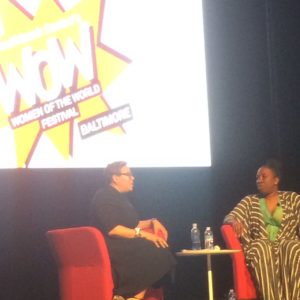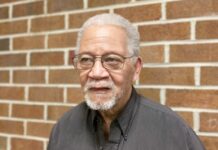
Looking back at the past two years, it’s hard to know how to feel. The country has been a mess of emotions and controversy since the 2016 election, and it doesn’t seem to be slowing down. 2017 was branded the “Year of the Woman,” beginning with the Women’s March and apparently re-upping in 2018. More women than ever are running for office (more on that here), the men’s club in media and business is being slowly but surely undermined by the #MeToo and #TimesUp movements, and women across the country are making inroads personally and politically. At the same time, women are being subjugated by laws limiting their bodily autonomy, must face every day under the authority of an administration that has proven itself unfriendly to women time and again, and run the risk of being called a “skinhead lesbian” for having short hair and an opinion.
After attending the Women of the World festival at Notre Dame of Maryland University, however, it was hard to feel anything but lucky. The day started with a rousing series of speeches from Baltimore women, instilling in the audience the sort of bubbling-over enthusiasm that inspires spontaneous applause. It was the introduction of #MeToo founder Tarana Burke, however, that changed the game–and, at the risk of sounding dramatic, my worldview.
Simply seeing Burke was exciting after spotting her on the covers of magazines from Time to Variety. But hearing her speak was a whole different story. In the social media era, it can be easy to become desensitized. I’ll admit that as supportive as I am of the #MeToo movement, the constant news stories of celebrities and politicians being accused of sexual assault had begun to run together, losing their impact.
But hearing from Burke, I was reminded just how important this work is. In her too-brief speech, she spoke of the origins of the movement, the importance of centering the experiences of black and brown women, and the future of #MeToo, comparing it to an outbreak of a communicable disease. “The first thing you’d see wouldn’t be an article about dating in the age of the disease,” she said. “Everyone would be doing everything they could to figure out what had caused it, how to fix it, and how to prevent it from ever happening again. That’s all I want for the treatment of sexual assault.”
Leaving the session, I felt ready to take on the world, something I could see in the eyes of my fellow audience members as well. As the day progressed, I learned lessons from powerful, inspiring women in a variety of workshops, but it was Burke who remained in my mind, particularly the words her friend Baltimore filmmaker and social justice activist Elissa Blount-Moorhead used in introducing her: “We are who we’ve been waiting for.”
If that’s not empowerment, I don’t know what is. WOW, indeed.




